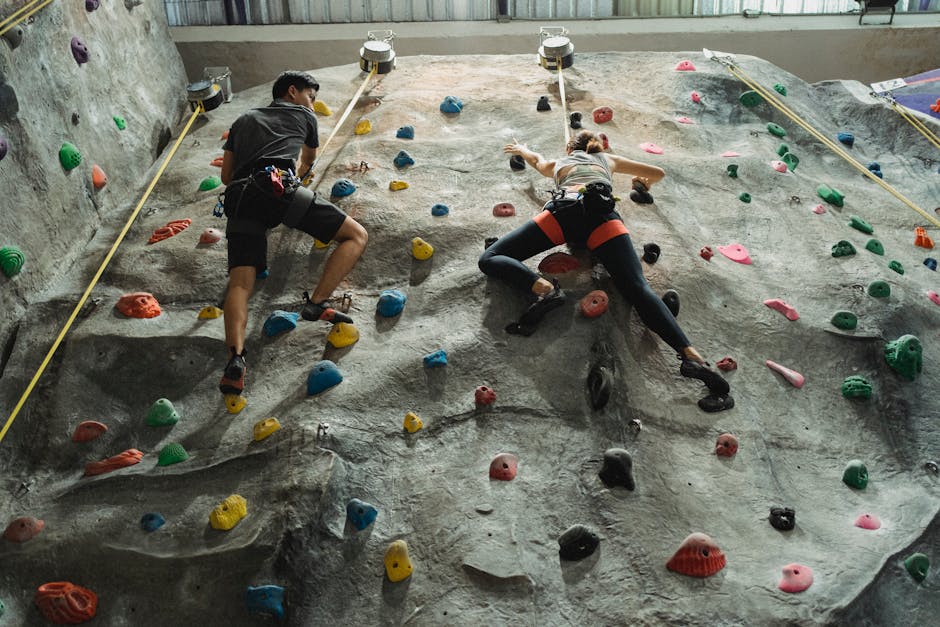Harnessing the Power of Teamwork
Did you know that teams that work well together can achieve up to 25% more productivity than those that don’t? Teamwork is not just a buzzword; it’s a powerful tool that can drive success in both work and life. Lets explore how to harness this power effectively.
What is Teamwork?

At it’s core, teamwork means people working together towards a common goal. Think of a sports team. Each player has a role, but they all aim to win the game. In the workplace, the same principle applies. Team members combine their skills and strengths to tackle projects, solve problems, and reach objectives.
Why is Teamwork Important?

Teamwork leads to better results. When people collaborate, they share ideas and perspectives. This exchange can spark creativity and innovation. Here are some reasons why teamwork matters:
- Increased Efficiency: Teams can divide tasks, allowing for faster completion.
- Diverse Perspectives: Different backgrounds and experiences bring new ideas to the table.
- Improved Morale: Working together can create a supportive environment.
- Shared Accountability: Team members hold each other responsible, which encourages commitment.
In fact, a study by Google found that teams with strong psychological safety perform better. When team members feel safe to express their ideas, they thrive.
What Makes a Great Team?

Not all teams are created equal. So, what traits define a successful team?
- Clear Goals: Every member should understand the team’s objectives.
- Defined Roles: Each person should know their responsibilities.
- Open Communication: Team members should feel comfortable sharing thoughts and feedback.
- Trust: Team members need to trust each other to perform their tasks.
Consider a family planning a vacation. They need to decide on a destination, budget, and activities. When everyone communicates and trusts each other, the planning goes smoothly, leading to a fun trip.
How Can You Foster Teamwork?

Fostering teamwork is not just about gathering people in a room. It requires effort and strategy. Here are some simple ways to build teamwork:
1. Set Clear Goals
Start with a clear vision. What do you want to achieve? Make sure everyone understands the goals. Writing them down can help keep everyone on track.
2. Encourage Open Communication
Create an environment where everyone feels safe to speak up. Regular meetings can help. Encourage team members to share updates, challenges, and successes.
3. Celebrate Achievements
Recognize and celebrate both small and large accomplishments. This boosts morale and encourages continued effort. A simple “thank you” can go a long way.
4. Build Trust
Trust takes time. Encourage team-building activities to strengthen relationships. These can be as simple as group lunches or fun outings.
In a recent survey, 70% of employees reported that team-building activities improved their relationships at work. This shows the impact of creating bonds.
Common Questions About Teamwork
What if Team Members don’t Get Along?
Conflicts are natural. Address them early. Encourage open dialogue to find common ground. Mediation can also help resolve deeper issues.
Can Teams Be Too Big?
Yes, large teams can lead to confusion. A good size is typically between 5 to 9 members. This allows for diverse input while keeping communication manageable.
How Can Technology Support Teamwork?
Technology offers many tools for collaboration. Platforms like Slack, Microsoft Teams, and Trello can enhance communication and project management. Choose tools that fit your teams needs.
Real-Life Examples of Successful Teamwork
Think of iconic teams like the Avengers. Each member has unique powers, but they unite for a common mission. In business, companies like Apple thrive on teamwork. Their innovation comes from collaborative efforts across different departments.
Another great example is local community projects. Volunteers come together to beautify parks or help families in need. Their combined efforts can create lasting change.
Final Thoughts: Take Action!
Teamwork is a vital ingredient for success in any group setting. By understanding it’s importance and implementing strategies to foster it, you can create a powerful team.
- Set clear goals for your team.
- Encourage open communication through regular meetings.
- Celebrate achievements to boost morale.
- Build trust through team-building activities.
Remember, great teams don’t just happen. They are built through effort, communication, and trust. Start today, and watch your team soar!
For more tips on improving teamwork, check out this article on MindTools.



